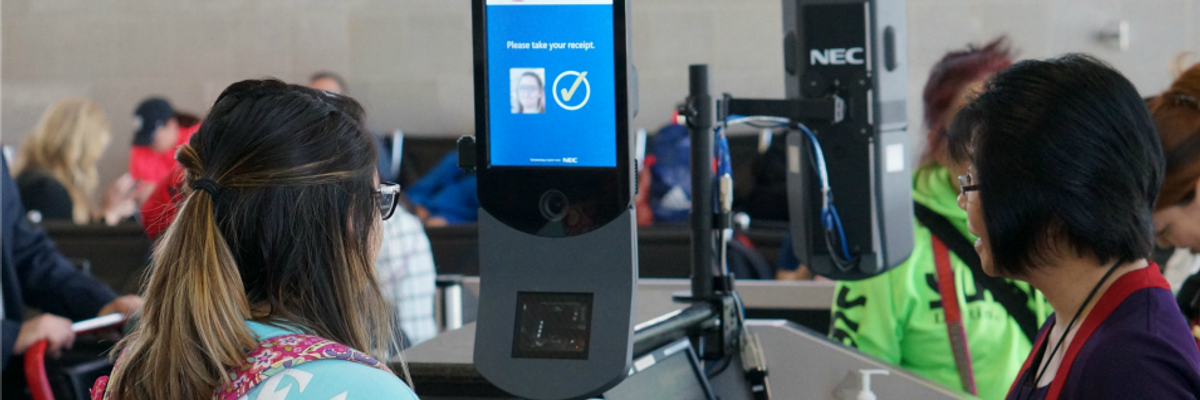The Department of Homeland Security said Wednesday that it expects to be able to use facial recognition technology to scan 97 percent of departing airline passengers within the next four years.
The department's facial recognition program, officially titled "Biometric Exit," is run by Customs and Border Protection (CBP), a branch of DHS.
According toThe Hill, the program "cross-references the images of departing passengers with a 'gallery' of images [and] photos from visa and passport applications. The matching service allows CBP to create a record of the passenger's departure, which they can then use to figure out if the individual has overstayed their visa."
Biometric Exit has raised alarm among privacy advocates.
Jeramie Scott, director of the Electronic Privacy Information Center's Domestic Surveillance Project, told Buzzfeed in March that "it's important to note what the use of facial recognition [in airports] means for American citizens."
"It means the government, without consulting the public, a requirement by Congress, or consent from any individual, is using facial recognition to create a digital ID of millions of Americans," Scott said.
Members of Congress have echoed privacy advocates' concerns about the implications of facial recognition technology, which is largely unregulated under U.S. law.
Sens. Ed Markey (D-Mass.) and Mike Lee (R-Utah) called on DHS to halt the Biometric Exit program in a joint statement last month.
"DHS has a statutory requirement to submit a report to Congress detailing the viability of biometric technologies, including privacy implications and accuracy," the senators said. "DHS should pause their efforts until American travelers fully understand exactly who has access to their facial recognition data, how long their data will be held, how their information will be safeguarded, and how they can opt out of the program altogether."
As Common Dreams reported last month, CBP is "scrambling" to implement its facial recognition program at busy airports in Atlanta, New York, and other major cities across the United States.
Jay Stanley, senior policy analyst with the ACLU, said facial recognition is "an extremely powerful surveillance technology that has the potential to do things never before done in human history."
"Yet the government is hurtling along a path towards its broad deployment--and in this case, a deployment that seems quite unjustified and unnecessary," Stanley added.

